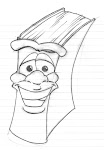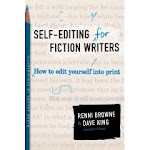
by Pam Zollman
“What do I do? What do I do now?”
Your main character has been through a scene where he had a definite goal to accomplish, but ran into trouble. That trouble or obstacle caused conflict between your character and another person or nature or society or even with himself. This conflict didn’t turn out the way your character hoped; instead, it was a disaster. He didn’t achieve his goal; in fact, things probably just got worse. Your character reacts to this disaster with horror, grief, surprise, sadess, disgust or some other emotion.
Now your character has to ask himself, "What do I do now?"

The second part of Sequel is Dilemma. Your character now finds himself in a bad situation. During this part, you will raise the tension as your character goes through his options. His options should be few and none of them good. Even if your character does nothing, that is a choice and usually a really bad one. As your character examines all his options, your reader will be on edge, worrying about what will happen next.
How much time do you spend on Dilemma? That all depends on your story and where you are in your story. As discussed in previous blog posts, the bigger disaster requires a longer sequel. A small disaster requires a smaller sequel. Sometimes all your character can think (or is implied) is, “What do I do now?” Other times, your character must weigh all his options before he takes another step. If the plot calls for it, let your character work through his choices, even if this slows down the pace. If this is a major decision, then your reader will want to experience the character’s thinking process. Otherwise, don’t let your character agonize over every single dilemma in the story.
For example, if your character finds that he’s standing on a landmine at the end of the scene (okay, that’s a pretty big disaster), his reaction and dilemma will have to be explored. After all, this is life or death, or, if not death, then maimed for life. If your character finds that he has a flat tire at the end of the scene, it’s probably not life or death. His reaction is probably frustration because he’s on his way to a job interview and his dilemma might be whether to change it himself and get dirty, but be on time, or to call for help, stay clean, but be late for the appointment.
Don’t skip Dilemma, even if it’s so small as to be implied. At least imply it. Your reader may not know why, but he will be dissatisfied. The missing piece, no matter the size, could pull your reader out of the story as he tries to figure out why your character does what he does.
Questions? Feel free to contact me at pam@anauthorworld.com and I’ll try to help you with any story problems.












No comments:
Post a Comment